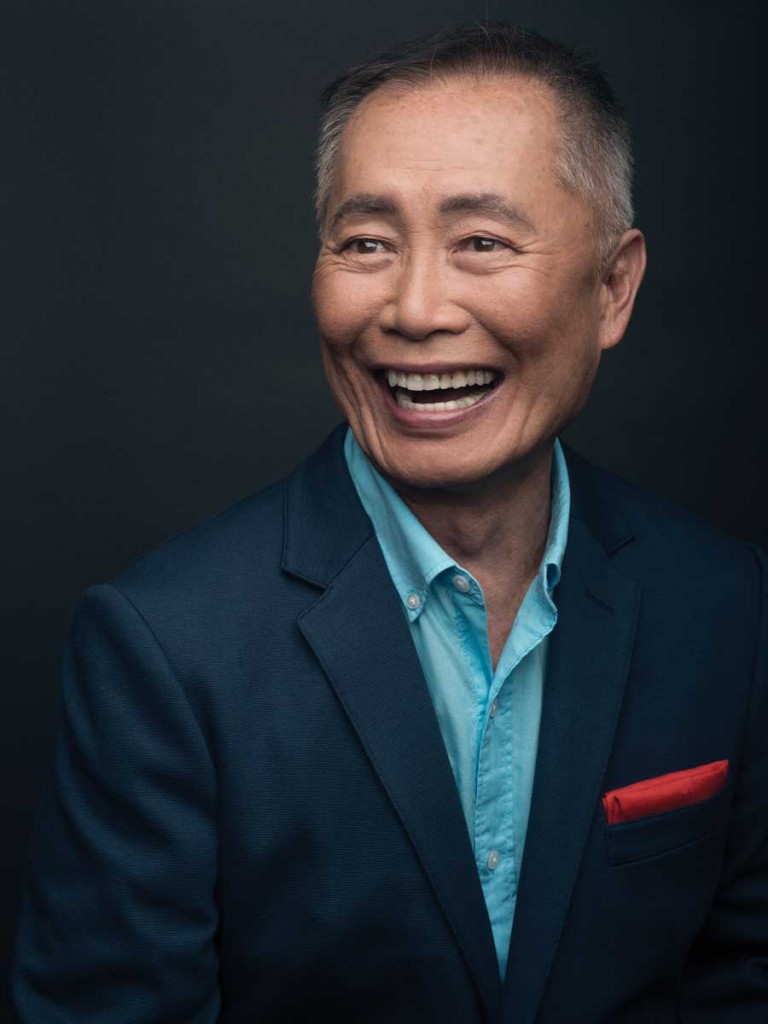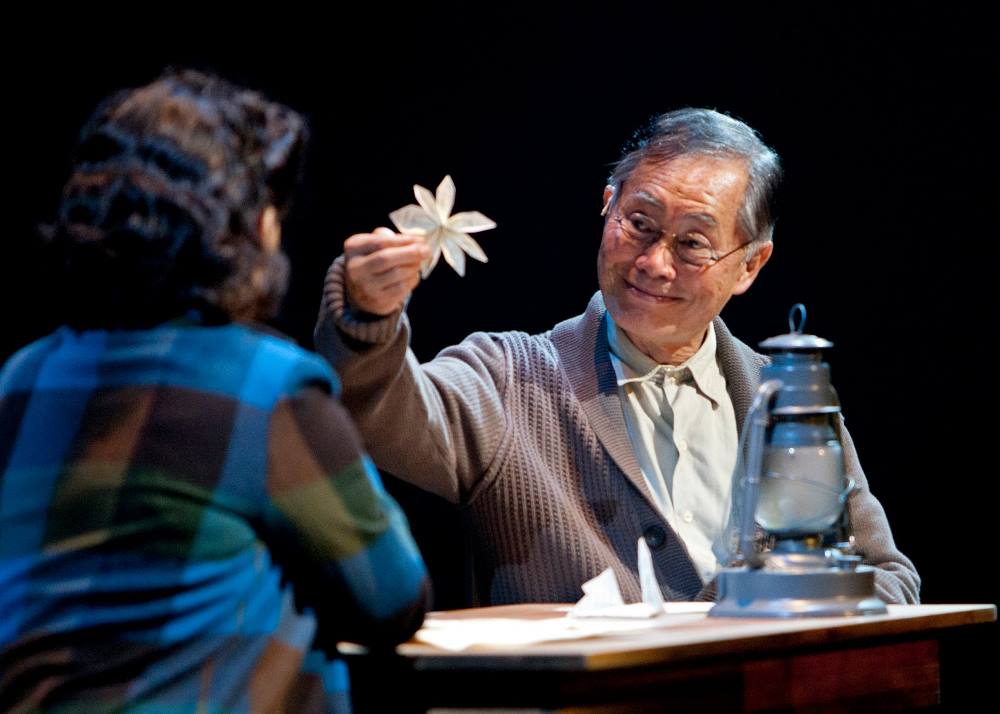George Takei may be known primarily as Hikaru Sulu on “Star Trek” and for creating viral Facebook and Twitter posts, but his heart is in the theatre. He’s the chair of the council of governors at East West Players in Los Angeles. This month, he makes his Broadway debut in Allegiance, a new musical by Jay Kuo, Marc Acito, and Lorenzo Thione, based on Takei’s childhood in an internment camp in Arkansas during World War II. The musical had a production at the Old Globe in 2012, and it begins previews at the Longacre Theatre on Oct. 6.

Since Allegiance is based on your life, did you have a lot of input in the writing?
I took them on a tour of the Japanese American National Museum in Los Angeles [where Takei is on the board of trustees]. It’s the preeminent place to research the Japanese-American experience. And when there were Japanese dialogue or lyrics, I provided them. I speak Japanese fluently, so I helped with language.
Are there any parts of Allegiance that are explicitly based on things that happened in your own life in the camps?
Absolutely, yes! A year after we were imprisoned behind barbed-wire fences, the military realized that there was a wartime manpower shortage. So they decided to tap this manpower, thinking, “We’ve got to ascertain their loyalty.” And they put together a very sloppy so-called “loyalty” questionnaire. There were two questions that turned all 10 internment camps into turmoil. Question 27 asked: “Will you bear arms to defend the United States of America?”
Question 28 was even more insidious. It asked in essence: “Will you swear your loyalty to the United States of America and forswear your loyalty to the emperor of Japan?” If you answered yes, meaning, “I do swear my loyalty to the United States,” then you’re also confessing to the second part. You were confessing that you had been loyal to the emperor and now were willing to forswear that, set that aside, and re-pledge your loyalty to the United States. It was outrageous!
We have a brother and sister [in Allegiance]. The brother, which is my character as a young man (Telly Leung), is so desperate to prove his loyalty to the United States that he answers both questions with that degrading yes. But his sister (Lea Salonga) falls in love with a young law student, who was yanked out of law school and put in the same camp. He becomes a resister and is arrested by the guards and taken away into federal penitentiary where he’s brutalized. So families were split up.
And my parents—for them, it was catastrophic. My father said, “They took my business, they took our home, they took our freedom. Now they want my dignity. I will not give them that.” And they were both “no, no” [on the questionnaire]. And for that we were yanked out of that Arkansan camp and sent to a hardcore camp, as they called it, in Northern California called Tule Lake.
Why do you think it’s taken this long to have an authentic musical about the Asian-American experience on Broadway?
It’s because Asian Americans have been renting out our faces, but essentially, the characters have been created by non-Asians. We were there only as hired faces, and not necessarily as talent. People were just plucked out of Chinatown restaurants.
And now, at long last, we are getting Asian Americans who are creative artists coming forward as writers, as composer/lyricists, and as trained actors. I think the emergence of Asian-American creative artists—into the theatrical arena, onto the theatrical stage—is what’s making the difference. In every arena too—whether it’s politics or commerce or literature—Asians are now defining our own image and telling our own stories, from our vantage point, in our voices. And I think that’s what’s making American theatre and American literature that much richer.
What’s the tackiest thing you own?
My surname frequently gets pronounced as “tacky.” So I have nothing that’s tacky—or those people that pronounced it tacky will consider everything I own tacky. [Laughs]
What three things would you take to a desert island?
One: my husband. And that covers the other two, I think.
You’re also known for your talents on social media. What are your thoughts on cellphones in the theatre?
Oh, no no! I just read in the New York Times this morning, Benedict Cumberbatch—he’s doing Hamlet at the Barbican—complained to the audience there about cellphones. Yeah, it’s a real bane to actors. It is so irritating when that light that comes on. I am a fan of social media, but I’m also a fan of good manners.
Will you be incorporating “Star Trek” into the marketing for Allegiance?
As a matter of fact, last weekend I was in Las Vegas for a “Star Trek” convention, and the tickets sold like the proverbial hot cakes. We have determined Oct. 31 to be “Star Trek” night [at Allegiance], and we urged them to come as they truly are. If they’re a Star Fleet captain, they should come in their dress uniforms. Or if they’re a Klingon, come as a Klingon.


